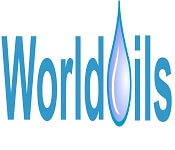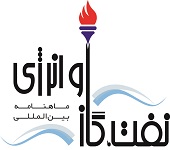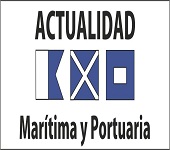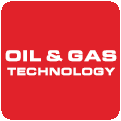Theme: Exploring and Enhancing the recent trends and applications in Energy World
Petroleum Congress 2018
- Welcome Message-Daniel J. Soeder, Director of Energy Resources Initiative
- About Conference
- Sessions/Tracks
- Market Analysis


Dear Colleagues,
It is my great honour and pleasure as an Organizing Committee member to invite you to participate in the 3rd World Congress on Petroleum Engineering and Natural Gas Recovery to be held in Sydney Australia, on 20-21 July, 2018.
Petroleum Congress 2018 brings together scientists, researchers, professors, industry representatives, postdoctoral fellows, and students from around the world, providing them with an opportunity to report, share, and discuss scientific queries, achievements, and challenges in the diverse fields of Petroleum and Natural Gas Engineering.
One of our aims is to generate new investigations and collaborations between scientists. We are keenly interested in welcoming graduate students and postdoctoral researchers to provide them a platform to showcase their research and ideas.
We hope that this conference will be productive and satisfying. Personally, I hope that you will have a very enjoyable and informative stay here, in Sydney.

Daniel J. Soeder
South Dakota School of Mines & Technology
USA
Conference Series llc LTD invites all the participants from all over the world to attend '3rd World Congress on Petroleum Engineering and Natural Gas Recovery' during July 20-21, 2018 in Sydney, Australia which includes prompt keynote presentations, Oral talks, Poster presentations and Exhibitions.
Petroleum Congress 2018 is a thick, black to yellow, flammable liquid mixture of hydrocarbons. Petroleum occurs naturally, mainly below the Earth's surface, and is believed to originate from the accumulated remains of ancient plants and animals. It is the source of petrochemicals and is used to make gasoline, lubricating oils, plastics, and many other products. The studies are more concerned to Petroleum geology, Drilling and Production Technology, Refinery Process, Petroleum and Chemical process control. Advanced studies are being made to improvise developments in Enhanced Oil Recovery, Petrochemistry, Fossil Fuel and Biofuels, Petroleum products and their uses, Computer Applications in Petroleum, Global oil and Gas Business and many more.
Importance and Scope:
Over the past few years, global economic activities have increased a lot. This tremendous growth has raised serious problems about current important patterns of production and consumption. With members from around the world focused on learning about petroleum refinery and its advances; this is the best opportunity to reach the largest assemblage of participants from the petroleum community. Conduct presentations, distribute information, meet with current and potential scientists, make a splash with new researches and its developments, and receive name recognition at petroleum congress conference. World-renowned speakers, the most recent techniques, developments and the newest updates in petroleum industry are hallmarks of this conference.
Why to attend?
Petroleum Congress 2018 offers a fantastic opportunity to meet and make new contacts in the field of Petroleum geology, Refinery process, by providing collaboration spaces and break-out rooms with tea and lunch for delegates between sessions with invaluable networking time for you. It allows delegates to have issues addressed on Petroleum and chemical process control by recognized global experts who are up to date with the latest developments in the Petroleum field and provide information on new techniques and technologies. This International Petroleum refinery conference will feature renowned keynote speakers, plenary speeches, young research forum, poster presentations, technical workshops and career guidance sessions.
Target Audience:
- Petroleum refinery industries
- Chemical Colleges
- Data Management Companies
- Petroleum engineering companies
- Oil and gas companies
- Petroleum Students, Scientists
- Petroleum, Oil and Gas Researchers
- Petroleum and Chemistry Faculty
- Petroleum Associations and Societies
- Business Entrepreneurs
- Training Institutes
- Software developing companies
- Manufacturing Companies
Track 1: Petroleum Geology
Petroleum geology is the study of the origin, natural occurrence, movement, gathering and exploration of hydrocarbon fuels, especially oil or petroleum. Petroleum geology involves sedimentology, the study of how sand, mud and clay are deposited. The majority of rocks found on the Earth's surface are sedimentary rocks. Studying sedimentology helps petroleum geologists understand how the petroleum deposits found in sedimentary rocks came to be because it is in sedimentary basins that the commercial accumulations of petroleum occur.
A sedimentary basin may be defined as an area in which sediments accumulate during a particular time span at a significantly greater rate and so to a significantly greater thickness than in the surrounding areas. This is not entirely satisfactory because of the vagueness about thickness-yet this vagueness exists. The essential part of any definition must be the accumulation of sediment relative to neighboring areas and its relative rather than absolute thickness. Another aspect of petroleum geology is stratigraphy, the study of the relationship between rock layers and the way they can move or shift. The movement of rock layers can affect where petroleum deposits are found, as well as the removal of the petroleum.
Related: Petroleum Conferences | Petroleum geology| Petroleum Refinery Congress
3rd International Convention on Geosciences and Remote Sensing October 19-20, 2018 Ottawa, Canada; World Congress on Oil, Gas and Petroleum Refinery September 27-28, 2018 Abu Dhabi, UAE; 8th International Conference on Petroleum Engineering May 17-18, 2018 Rome, Italy; 5th World congress on Chemical Engineering and Catalysis August 28-30, 2018 Paris, France; 5th International Conference on Geological and Environmental Sustainability August 13-14, 2018, Bali, Indonesia
Related Societies:
Austin Geological Society, Australian Institute of Petroleum, Australian Petroleum Production and Exploration Association, Canadian Society of Petroleum Geologists, Dhahran Geoscience Society, Environmental and Engineering Geophysical Society, Geological Society of Malaysia, Geological Society of Japan, International Society for Rock Mechanics, Kentucky Oil & Gas Association, Nevada Petroleum Society, Ohio Geological Society, Royal Geological and Mining Society of the Netherlands, Society for Sedimentary Geology, Society of Petroleum Engineers,
Track 2: Geophysical Exploration
Geophysical Exploration is the application of the principles of Physics to the study of the subsurface, in search of hydrocarbon. Geophysical investigations of the interior of the earth involve taking measurements at or near earth’s surface that are influenced by the internal distribution of physical properties. The objective of any exploration venture is to find new volumes of hydrocarbons at a low cast and in a short span of time. The usual sequence of activities once an area has been selected for exploration starts with the definition of a basin. Petroleum exploration and production are concerned with the geological interpretation of geophysical data, especially in offshore areas.
Related: Petroleum Conferences | Drilling Conferences | Petroleum Refinery Congress
3rd International Convention on Geosciences and Remote Sensing October 19-20, 2018 Ottawa, Canada; World Congress on Oil, Gas and Petroleum Refinery September 27-28, 2018 Abu Dhabi, UAE; 8th International Conference on Petroleum Engineering May 17-18, 2018 Rome, Italy; 5th World congress on Chemical Engineering and Catalysis August 28-30, 2018 Paris, France; 5th International Conference on Geological and Environmental Sustainability August 13-14, 2018, Bali, Indonesia
Related Societies:
Canadian Association Of Drilling Engineers, Canadian Association of Oilwell Drilling Contractors, Clay Minerals Society, Drilling Engineering Association, European Drilling Engineering Association, History of Earth Sciences Society, International Marine Minerals Society, Minerals, Metals & Materials Society.
Track 3: Hydraulic Fracturing
Hydraulic Fracturing is the process of pumping fluid into a wellbore at an injection rate that is too high for the formation to accept without breaking. During injection the resistance to flow in the formation increases, the pressure in the wellbore increases to a value called the break-down pressure that is the sum of the in-situ compressive stress and the strength of the formation. Once the formation “breaks down,” a fracture is formed, and the injected fluid flows through it. From a limited group of active perforations, ideally a single, vertical fracture is created that propagates in two "wings" being 180° apart and identical in shape and size. In naturally fractured or cleated formations, it is possible that multiple fractures are created and/or the two wings evolve in a tree-like pattern with increasing number of branches away from the injection point.
Related: Petroleum Conferences | Refinery Gases| Petroleum Refinery Congress
3rd International Convention on Geosciences and Remote Sensing October 19-20, 2018 Ottawa, Canada; World Congress on Oil, Gas and Petroleum Refinery September 27-28, 2018 Abu Dhabi, UAE; 8th International Conference on Petroleum Engineering May 17-18, 2018 Rome, Italy; 5th World congress on Chemical Engineering and Catalysis August 28-30, 2018 Paris, France; 5th International Conference on Geological and Environmental Sustainability August 13-14, 2018, Bali, Indonesia
Related Societies:
Australian Petroleum Production and Exploration Association, Australian Society of Exploration Geophysicists, Independent Petroleum Association of America, Japanese Association for Petroleum Technology, Norsk Petroleumsforening, Petroleum Exploration Society of Australia, Public Petroleum Data Model Association, Society of Petroleum Engineers.
Track 4: Advanced Drilling Technologies
Drilling is a unique mechanical process that is designed to bring petroleum oil hydrocarbons to the surface by making a hole or bore into the earth’s surface. In geotechnical engineering, drilling fluid is used to aid the drilling of boreholes into the earth. Drilling rigs are used not only to identify geologic reservoirs but also to create holes that allow the extraction of oil or natural gas from those reservoirs. Traditionally oil and gas wells are vertically drilled. Technological advancements have allowed operators to save time, reduce operational costs, and lessen their environmental impact.
Related: Petroleum Conferences | Chemical process control | Petroleum Refinery Congress
3rd International Convention on Geosciences and Remote Sensing October 19-20, 2018 Ottawa, Canada; World Congress on Oil, Gas and Petroleum Refinery September 27-28, 2018 Abu Dhabi, UAE; 8th International Conference on Petroleum Engineering May 17-18, 2018 Rome, Italy; 5th World congress on Chemical Engineering and Catalysis August 28-30, 2018 Paris, France; 5th International Conference on Geological and Environmental Sustainability August 13-14, 2018, Bali, Indonesia
Related Societies:
American Chemical Society - Geochemistry Division, Geochemical Society, Canadian Association Of Petroleum Producers, Canadian Institute of Mining, Metallurgy and Petroleum, Independent Petroleum Association of America, Japanese Association for Petroleum Technology, Norsk Petroleumsforening, Petroleum Exploration Society of Australia, Public Petroleum Data Model Association, Society of Petroleum Engineers, Southeast Asia Petroleum Exploration Society.
Track 5: Petroleum Refineries
Petroleum refinery is an industrial process plant where crude oil is processed and refined into more useful products such as petroleum naphtha, gasoline, diesel fuel, asphalt base, heating oil, kerosene and liquefied petroleum gas. Oil refineries are typically large, sprawling industrial complexes with extensive piping running throughout, carrying streams of fluids between large chemical processing units. In many ways, oil refineries use much of the technology of, and can be thought of, as types of chemical plants. The crude oil feed stock has typically been processed by an oil production plant. There is usually an oil depot (tank farm) at or near an oil refinery for the storage of incoming crude oil feedstock as well as bulk liquid products. An oil refinery is considered an essential part of the downstream side of the petroleum industry.
Unprocessed crude oil is not generally useful in industrial applications, although "light, sweet" (low viscosity, low sulfur) crude oil has been used directly as a burner fuel to produce steam for the propulsion of seagoing vessels. The lighter elements, however, form explosive vapors in the fuel tanks and are therefore hazardous, especially in warships. Instead, the hundreds of different hydrocarbon molecules in crude oil are separated in a refinery into components which can be used as fuels, lubricants, and as feedstock in petrochemical processes that manufacture such products as plastics, detergents, solvents, elastomers and fibers such as nylon and polyesters.
Related: Petroleum Conferences | Enhanced Oil Recovery | Petroleum Refinery Congress
3rd International Convention on Geosciences and Remote Sensing October 19-20, 2018 Ottawa, Canada; World Congress on Oil, Gas and Petroleum Refinery September 27-28, 2018 Abu Dhabi, UAE; 8th International Conference on Petroleum Engineering May 17-18, 2018 Rome, Italy; 5th World congress on Chemical Engineering and Catalysis August 28-30, 2018 Paris, France; 5th International Conference on Geological and Environmental Sustainability August 13-14, 2018, Bali, Indonesia
Related Societies:
American Chemical Society - Geochemistry Division, Geochemical Society, Canadian Association Of Petroleum Producers, Canadian Institute of Mining, Metallurgy and Petroleum, Independent Petroleum Association of America, Japanese Association for Petroleum Technology, Norsk Petroleumsforening, Petroleum Exploration Society of Australia, Public Petroleum Data Model Association, Society of Petroleum Engineers, Southeast Asia Petroleum Exploration Society.
Track 6: Computer Applications in Petroleum Engineering
Petroleum Engineering makes use of technology in a variety of ways depending on the specialization area. The reason for this is because the ability to extract hydrocarbons has become more complex as the terrain has become more difficult including deep-water, arctic and desert conditions. Therefore, new solutions have had to be constructed in order to access these hard to reach deposits and this means that Petroleum Engineers need to understand different areas such as thermo-hydraulics, geo-mechanics and intelligent systems. As a result petroleum engineering technology applications have played an increasing role in aiding engineers in their work. Petroleum engineering technology continues to improve and there have been advances in computer modelling and simulation, statistical and probability analysis, as well new technical innovations such as horizontal drilling and enhanced oil recovery. These applications and technologies have substantially improved the tools used by the Petroleum Engineer in recent years, and they will continue to play an important part in their activities as they seek to research and develop new ways to extract new deposits, while lowering the cost of drilling and production.
Related: Petroleum Conferences | Petrochemistry | Petroleum Refinery Congress
3rd International Convention on Geosciences and Remote Sensing October 19-20, 2018 Ottawa, Canada; World Congress on Oil, Gas and Petroleum Refinery September 27-28, 2018 Abu Dhabi, UAE; 8th International Conference on Petroleum Engineering May 17-18, 2018 Rome, Italy; 5th World congress on Chemical Engineering and Catalysis August 28-30, 2018 Paris, France; 5th International Conference on Geological and Environmental Sustainability August 13-14, 2018, Bali, Indonesia
Related Societies:
American Chemical Society - Geochemistry Division, Geochemical Society, Canadian Association Of Petroleum Producers, Canadian Institute of Mining, Metallurgy and Petroleum, Independent Petroleum Association of America, Japanese Association for Petroleum Technology, Norsk Petroleumsforening, Petroleum Exploration Society of Australia, Society of Petroleum Engineers, Southeast Asia Petroleum Exploration Society.
Track 7: Computational Modeling Techniques
Monte Carlo simulation is a process of running a model numerous times with a random selection from the input distributions for each variable. The results of these numerous scenarios can give you a "most likely" case, along with a statistical distribution to understand the risk or uncertainty involved. Computer programs make it easy to run thousands of random samplings quickly. one form of a volumetric model for oil in place, N, in terms of area, A; net pay, h; porosity, φ; water saturation, Sw; and formation volume factor, Bo.
N = 7,758Ahφ(1 - Sw) / Bo. Think of A, h, φ, Sw, and Bo as input parameters and N as the output.
The traditional tornado chart consists of bars of various length indicating the range of values of some key output (cost, reserves, NPV) associated with the full range of values.
Like tornado charts, a spider diagram is a traditional but limited. Again, one holds fixed all but one variable and examines how the output changes (usually measured as a percent change) as we vary that one input (usually by a few specific percentages). Typically, we might vary each input by 5, 10, and 20% and see how much the output changes. Often the percent change is not linear, causing the resulting graph to have broken line segments, accounting for the name: spider diagram.
Related: Petroleum Conferences | Fossil Fuel and Biofuels | Petroleum Refinery Congress
3rd International Convention on Geosciences and Remote Sensing October 19-20, 2018 Ottawa, Canada; World Congress on Oil, Gas and Petroleum Refinery September 27-28, 2018 Abu Dhabi, UAE; 8th International Conference on Petroleum Engineering May 17-18, 2018 Rome, Italy; 5th World congress on Chemical Engineering and Catalysis August 28-30, 2018 Paris, France; 5th International Conference on Geological and Environmental Sustainability August 13-14, 2018, Bali, Indonesia
Related Societies:
Biomass Energy Research Association, American Society of Agricultural and Biological Engineers, Canadian Renewable Fuels Association, Energy Efficiency and Renewable Energy Information Center, Renewable Fuels Association, American Ecological Engineering Society, Petroleum Exploration Society of Australia, Society of Petroleum Engineers, Southeast Asia Petroleum Exploration Society.
Track 8: Petroleum Desulphurization Techniques
Sulphur exists in crude petroleum as a non-hydrocarbon constituent in different concentrations. Among the distillate fractions obtained from crude oil, the distribution of sulphur compounds is not uniform, rather it vary from fraction to fraction depending upon their boiling points. The concentration as well as the complexity in the structure of the sulphur compounds increases in various distillate fractions with the increase in boiling points. In petroleum its presence is undesirable due to corrosion problems, deactivating catalysts in various refining processes and contributing to environmental pollution. So the regulation authorities are imposing strict regulations to limit the amount of sulphur in petroleum based liquid fuels.
Concerning the detrimental effects of sulphur compounds in the form of environmental pollutant, health effect and hurdling in the refining processes, it is important to remove sulphur from petroleum derived fuels prior to their usage for energy. Sulphur compounds are removed from petroleum and petroleum derived products through the process as desulphurization process. Today hydrodesulphurization (HDS) is the only process used by refineries worldwide for desulphurization of petroleum, but researchers are introducing new techniques which are more efficient and cost effectives than HDS.
Related: Petroleum Conferences | Petroleum products | Petroleum Refinery Congress
3rd International Convention on Geosciences and Remote Sensing October 19-20, 2018 Ottawa, Canada; World Congress on Oil, Gas and Petroleum Refinery September 27-28, 2018 Abu Dhabi, UAE; 8th International Conference on Petroleum Engineering May 17-18, 2018 Rome, Italy; 5th World congress on Chemical Engineering and Catalysis August 28-30, 2018 Paris, France; 5th International Conference on Geological and Environmental Sustainability August 13-14, 2018, Bali, Indonesia
Related Societies:
Australian Petroleum Production and Exploration Association, Australian Society of Exploration Geophysicists , Canadian Association Of Petroleum Producers, Canadian Institute of Mining, Metallurgy and Petroleum, Independent Petroleum Association of America, Japanese Association for Petroleum Technology, Norsk Petroleumsforening, Petroleum Exploration Society of Australia, Public Petroleum Data Model Association, Society of Petroleum Engineers, Southeast Asia Petroleum Exploration Society.
Track 9: Reservoir Engineering & Reservoir Simulation
Reservoir Engineering involves assessing oil and gas deposits. Reservoir Engineers firstly estimate the size of a reservoir, then determine how much oil and gas reserves are in the reservoir and finally work out how to maximize the economic return from extracting them. They work together with geologists and geophysicists to find the reserves of oil and gas while relying on the basic laws of physics and chemistry. These include applying the behavioural effects of liquid and vapour phases of oil, natural gas, and water in rock. The next step is to determine the economic feasibility of extracting the gas. The ultimate responsibility of the reservoir engineer is to maximize the output of the reservoir without causing overproduction.
Reservoir simulation is an area of reservoir engineering in which computer models are used to predict the flow of fluids (typically, oil, water, and gas) through porous media. Reservoir simulation models are used by oil and gas companies in the development of new fields. As building and maintaining a robust, reliable model of a field is often time-consuming and expensive, models are typically only constructed where large investment decisions are at stake. Improvements in simulation software have lowered the time to develop a model.
Related: Petroleum Conferences | Sustainable Energy| Petroleum Refinery Congress
3rd International Convention on Geosciences and Remote Sensing October 19-20, 2018 Ottawa, Canada; World Congress on Oil, Gas and Petroleum Refinery September 27-28, 2018 Abu Dhabi, UAE; 8th International Conference on Petroleum Engineering May 17-18, 2018 Rome, Italy; 5th World congress on Chemical Engineering and Catalysis August 28-30, 2018 Paris, France; 5th International Conference on Geological and Environmental Sustainability August 13-14, 2018, Bali, Indonesia
Related Societies:
Biomass Energy Research Association, American Society of Agricultural and Biological Engineers, Canadian Renewable Fuels Association, Energy Efficiency and Renewable Energy Information Center, Renewable Fuels Association, American Ecological Engineering Society, Petroleum Exploration Society of Australia, Society of Petroleum Engineers, Southeast Asia Petroleum Exploration Society.
Track 10: Advanced Natural Gas Engineering
Natural gas is a subcategory of petroleum which is naturally occurring complex mixture of hydrocarbons, with a minor amount of inorganic compounds. Geologists and chemists agree that petroleum originates from plants and animal remains that accumulate on the sea floor along with the sediments that form sedimentary rocks. The contributing factors are thought to be bacterial action; shearing pressure during compaction, heat and natural distillation at depth; possible addition of hydrogen from deep-seated sources; presence of catalysts. Because natural gas is petroleum in a gaseous state, it is always accompanied by oil that is liquid petroleum. Non associated gas is from reservoirs with minimal oil. Associated gas is the gas dissolved in oil under natural conditions in the oil reservoir. Gas condensate refers to gas with high content of liquid hydrocarbon at reduced pressures and temperatures. Natural gas reserves include Proved reserves and Potential resources. Proved reserves are the quantities of gas that have been found by the drill. Potential resources constitute those quantities of natural gas that are believed to exist in various rocks of the Earth’s crust but have not yet been found by drill.
Related: Petroleum Conferences | Computer Applications | Petroleum Refinery Congress
3rd International Convention on Geosciences and Remote Sensing October 19-20, 2018 Ottawa, Canada; World Congress on Oil, Gas and Petroleum Refinery September 27-28, 2018 Abu Dhabi, UAE; 8th International Conference on Petroleum Engineering May 17-18, 2018 Rome, Italy; 5th World congress on Chemical Engineering and Catalysis August 28-30, 2018 Paris, France; 5th International Conference on Geological and Environmental Sustainability August 13-14, 2018, Bali, Indonesia
Related Societies:
Australian Petroleum Production and Exploration Association, Australian Society of Exploration Geophysicists , Canadian Association Of Petroleum Producers, Canadian Institute of Mining, Metallurgy and Petroleum, Independent Petroleum Association of America, Japanese Association for Petroleum Technology, Norsk Petroleumsforening, Petroleum Exploration Society of Australia, Public Petroleum Data Model Association, Society of Petroleum Engineers, Southeast Asia Petroleum Exploration Society.
Track 11: Petrophysics & Petrochemistry
Petrophysics is the study of physical and chemical rock properties and their interactions with fluids. A major application of Petrophysics is in studying reservoirs for the hydrocarbon industry. Petrophysicists are employed to help reservoir engineers and geoscientists understand the rock properties of the reservoir, particularly how pores in the subsurface are interconnected, controlling the accumulation and migration of hydrocarbons. Some of the key properties studied in Petrophysics are lithology, porosity, water saturation, permeability and density. A key aspect of Petrophysics is measuring and evaluating these rock properties by acquiring well log measurements - in which a string of measurement tools are inserted in the borehole, core measurements - in which rock samples are retrieved from subsurface, and seismic measurements.
Petrochemistry is a branch of chemistry that studies the transformation of crude oil (petroleum) and natural gas into useful products or raw materials. These petrochemicals have become an essential part of the chemical industry today.
Related: Petroleum Conferences | Oil and Gas | Petroleum Refinery Congress
3rd International Convention on Geosciences and Remote Sensing October 19-20, 2018 Ottawa, Canada; World Congress on Oil, Gas and Petroleum Refinery September 27-28, 2018 Abu Dhabi, UAE; 8th International Conference on Petroleum Engineering May 17-18, 2018 Rome, Italy; 5th World congress on Chemical Engineering and Catalysis August 28-30, 2018 Paris, France; 5th International Conference on Geological and Environmental Sustainability August 13-14, 2018, Bali, Indonesia
Related Societies:
American Chemical Society - Geochemistry Division, Geochemical Society, Canadian Association Of Petroleum Producers, Canadian Institute of Mining, Metallurgy and Petroleum, Independent Petroleum Association of America, Japanese Association for Petroleum Technology, Norsk Petroleumsforening, Petroleum Exploration Society of Australia, Society of Petroleum Engineers, Southeast Asia Petroleum Exploration Society.
Track 12: New frontiers in Petroleum Engineering
Petroleum engineering is considered as a relatively new among other engineering disciplines. Due to the need for a specialized petroleum engineering science, its pillars were set by mining engineers, geologists, mechanical engineers, civil engineers and many other contributors. The boundaries of petroleum engineering are well defined in the first quarter of the twentieth century. In 1915, specialized petroleum engineering programs were established in the United States universities followed by other universities worldwide. From that time petroleum engineering science was rapidly growing and evolving to provide the humanity with the power source for the modern technology.
As demand for oil and its derivatives is increasing, education, research, and technology are also rapidly developing to drive the oil and gas sector forward by developing new technical solutions, standards and industry best practices.
Related: Petroleum Conferences | Transportation | Petroleum Refinery Congress
3rd International Convention on Geosciences and Remote Sensing October 19-20, 2018 Ottawa, Canada; World Congress on Oil, Gas and Petroleum Refinery September 27-28, 2018 Abu Dhabi, UAE; 8th International Conference on Petroleum Engineering May 17-18, 2018 Rome, Italy; 5th World congress on Chemical Engineering and Catalysis August 28-30, 2018 Paris, France; 5th International Conference on Geological and Environmental Sustainability August 13-14, 2018, Bali, Indonesia
Related Societies:
Austin Geological Society, Australian Institute of Petroleum, Australian Petroleum Production and Exploration Association, Canadian Society of Petroleum Geologists, Dhahran Geoscience Society, Environmental and Engineering Geophysical Society, Geological Society of Malaysia, Geological Society of Japan, International Society for Rock Mechanics, Kentucky Oil & Gas Association, Nevada Petroleum Society, Ohio Geological Society, Royal Geological and Mining Society of the Netherlands, Society for Sedimentary Geology, Society of Petroleum Engineers, Yorkshire Geological Society.
Track 13: Major Challenges in Petroleum Industry
Over the last twenty years the field of Petroleum Engineering has undergone major changes. The evolution of technology as well as the increasing presence of computerized tools in nearly all stages of the exploration-production processes. Petroleum Industry demands from our possible future leaders and managers a basic understanding of the oil business, the global market, its trends, risks and economical implications. Knowledge about major oil and service companies and their markets and geographic areas of operation is also necessary since, as it is well known, professional development and promotions often come with reallocation to a different region or country. In addition, modern professionals will be asked to be well-informed about legal and ethics issues and have an awareness of matters related to health, safety and environment.
The Exploration and Production in Petroleum industry faces numerous challenges as it addresses growing energy demand, the need for sustainable operations, declining production from older reservoirs, and new resources is harder to reach and harsher environments. The Society for Petroleum Engineers Research & Development Committee identified five grand challenges for the industry and is developing white papers for each one that describe the challenge, the current state of R&D, and areas for further research.
Related: Petroleum Conferences | Natural hazards | Petroleum Refinery Congress
3rd International Convention on Geosciences and Remote Sensing October 19-20, 2018 Ottawa, Canada; World Congress on Oil, Gas and Petroleum Refinery September 27-28, 2018 Abu Dhabi, UAE; 8th International Conference on Petroleum Engineering May 17-18, 2018 Rome, Italy; 5th World congress on Chemical Engineering and Catalysis August 28-30, 2018 Paris, France; 5th International Conference on Geological and Environmental Sustainability August 13-14, 2018, Bali, Indonesia
Related Societies:
International Society for the Prevention and Mitigation of Natural Hazards, Hazards, Risks, and Disasters in Society, Drilling, Observation and Sampling of the Earths Continental Crust, European Drilling Engineering Association, Geological Society of Japan, International Society for Rock Mechanics, Kentucky Oil & Gas Association, Minerals, Metals & Materials Society, Nevada Petroleum Society, Ohio Geological Society, Royal Geological and Mining Society of the Netherlands, Society for Sedimentary Geology, Society of Petroleum Engineers, Yorkshire Geological Society.
Track 14: Environmental Impacts in Petroleum Engineering
Petroleum-derived contaminants constitute one of the most prevalent sources of environmental degradation in the industrialized world. In large concentrations, the hydrocarbon molecules that make up crude oil and petroleum products are highly toxic to many organisms, including humans. Petroleum also contains trace amounts of sulfur and nitrogen compounds, which are dangerous by themselves and can react with the environment to produce secondary poisonous chemicals. The dominance of petroleum products in the United States and the world economy creates the conditions for distributing large amounts of these toxins into populated areas and ecosystems around the globe. The environmental impact of petroleum is often negative because it is toxic to almost all forms of life and its extraction fuels climate change. Petroleum, commonly referred to as oil, is closely linked to virtually all aspects of present society, especially for transportation and heating for both homes and for commercial and industrial activities.
Related: Petroleum Conferences | Natural hazards | Petroleum Refinery Congress
3rd International Convention on Geosciences and Remote Sensing October 19-20, 2018 Ottawa, Canada; World Congress on Oil, Gas and Petroleum Refinery September 27-28, 2018 Abu Dhabi, UAE; 8th International Conference on Petroleum Engineering May 17-18, 2018 Rome, Italy; 5th World congress on Chemical Engineering and Catalysis August 28-30, 2018 Paris, France; 5th International Conference on Geological and Environmental Sustainability August 13-14, 2018, Bali, Indonesia
Related Societies:
International Society for the Prevention and Mitigation of Natural Hazards, Hazards, Risks, and Disasters in Society, Drilling, Observation and Sampling of the Earths Continental Crust, European Drilling Engineering Association, Geological Society of Japan, International Society for Rock Mechanics, Kentucky Oil & Gas Association, Minerals, Metals & Materials Society, Nevada Petroleum Society, Ohio Geological Society, Royal Geological and Mining Society of the Netherlands, Society for Sedimentary Geology, Society of Petroleum Engineers, Yorkshire Geological Society.
Track 15: Petroleum Substitutes
The scale of global fossil fuel consumption is massive. While fossil fuel consumption continues to increase to sustain our growing population and the advancement of developing nations most of this increase in consumption comes from coal and natural gas. Coal and gas production rates are currently increasing faster than consumption rates. For petroleum oil however, consumption has grown faster than oil production in the same period largely due to the plateau in production of conventional oil; a harbinger of some major challenges and changes to the future energy mix. The petroleum industry can exploit a range of feedstock for the production, processing and transformation of liquid hydrocarbons, of which conventional oil has, until recently, been the cheapest and most readily accessible. A significant factor in the choice of future feedstock will be the impact on global CO2 emissions for which targets have been set by many governments suggesting a trend that is likely to increase. If effective, these targets would impose a market premium increasingly favoring CO2-neutral feedstock, including fuels derived from algae.
Related: Petroleum Conferences | Natural hazards | Petroleum Refinery Congress
3rd International Convention on Geosciences and Remote Sensing October 19-20, 2018 Ottawa, Canada; World Congress on Oil, Gas and Petroleum Refinery September 27-28, 2018 Abu Dhabi, UAE; 8th International Conference on Petroleum Engineering May 17-18, 2018 Rome, Italy; 5th World congress on Chemical Engineering and Catalysis August 28-30, 2018 Paris, France; 5th International Conference on Geological and Environmental Sustainability August 13-14, 2018, Bali, Indonesia
Related Societies:
International Society for the Prevention and Mitigation of Natural Hazards, Hazards, Risks, and Disasters in Society, Drilling, Observation and Sampling of the Earths Continental Crust, European Drilling Engineering Association, Geological Society of Japan, International Society for Rock Mechanics, Kentucky Oil & Gas Association, Minerals, Metals & Materials Society, Nevada Petroleum Society, Ohio Geological Society, Royal Geological and Mining Society of the Netherlands, Society for Sedimentary Geology, Society of Petroleum Engineers, Yorkshire Geological Society.
Track 16: Major Challenges in Petroleum Industry
Petroleum Economics is about how oil and gas activities are driven by economic considerations, and how the values are shared. Just about anyone working with the petroleum sector needs to understand some fundamentals of its economics. Petroleum Economics has a vital role to play in the Oil & Gas Industry and it lies at the heart of all decision making. Various techniques have evolved over time in determining and calculating economic inputs, evaluating investments, quantifying risk and generating feasible portfolios. Petroleum Economics brings together information and expertise across the E&P spectrum and a clear understanding of concepts such as cash flow analysis, organizational challenges, price forecasting, cost drivers and risk management is required. This training event aims to bring together a wide industry audience including practitioners of economics and decision making, petroleum engineers & geoscientists and offers structured short interactive training sessions on topics such as Economic Modeling, Decision Analysis, Exploration Analysis and Economics of Unconventional Resources.
Related: Petroleum Conferences | Natural hazards | Petroleum Refinery Congress
3rd International Convention on Geosciences and Remote Sensing October 19-20, 2018 Ottawa, Canada; World Congress on Oil, Gas and Petroleum Refinery September 27-28, 2018 Abu Dhabi, UAE; 8th International Conference on Petroleum Engineering May 17-18, 2018 Rome, Italy; 5th World congress on Chemical Engineering and Catalysis August 28-30, 2018 Paris, France; 5th International Conference on Geological and Environmental Sustainability August 13-14, 2018, Bali, Indonesia
Related Societies:
International Society for the Prevention and Mitigation of Natural Hazards, Hazards, Risks, and Disasters in Society, Drilling, Observation and Sampling of the Earths Continental Crust, European Drilling Engineering Association, Geological Society of Japan, International Society for Rock Mechanics, Kentucky Oil & Gas Association, Minerals, Metals & Materials Society, Nevada Petroleum Society, Ohio Geological Society, Royal Geological and Mining Society of the Netherlands, Society for Sedimentary Geology, Society of Petroleum Engineers, Yorkshire Geological Society.
Theme: Exploring and Enhancing the recent trends and applications in Energy World
Summary:
Petroleum Congress 2018 is the platform to gain or share the knowledge in the new and advanced technological developments in the field of chemical engineering. This conference brings together professors, researchers, scientists and practitioners in all the areas of Petroleum Engineering, oil and gas engineering services which provides an international forum for the spreading of approved research results, new ideas and practical developments. We are honored to invite you all to attend and register for the “3rd World Congress on Petroleum Refinery and Natural Gas Recovery (Petroleum Congress 2018)”.
For more details please visit: http://petroleum.conferenceseries.com/
Importance & Scope:
Petroleum is sold as fuel oil and liquefied petroleum gas. Demand for petroleum is driven by auto and truck use, as well as home heating. The top two countries that consume the most petroleum are China and Japan; together they account for 20% of total global usage. The U.S. fuel oil and LP gas dealers had total annual revenue of about $770 billion in 2013, from about 5,400 companies. Fuel oil and LP gas sales were about 40% of sales, while automotive fuels were about 10%.
Why Sydney?
Sydney, capital of New South Wales and one of Australia's largest cities, is best known for its harbourfront Sydney Opera House, with a distinctive sail-like design. Massive Darling Harbour and the smaller Circular Quay port are hubs of waterside life, with the arched Harbour Bridge and esteemed Royal Botanic Garden nearby. Sydney Tower’s outdoor platform, the Skywalk, offers 360-degree views of the city and suburbs.
Why to attend?
Petroleum Congress 2018 offers a fantastic opportunity to meet and make new contacts in the field of Petroleum geology, Refinery Gases, by providing collaboration spaces and break-out rooms with tea and lunch for delegates between sessions with invaluable networking time for you. It allows delegates to have issues addressed on Petroleum and chemical process control by recognized global experts who are up to date with the latest developments in the Petroleum field and provide information on new techniques and technologies. This International Petroleum refinery conference will feature renowned keynote speakers, plenary speeches, young research forum, poster presentations, technical workshops and career guidance sessions.
Target Audience:
- Petroleum refinery industries
- Chemical Colleges
- Data Management Companies
- Petroleum engineering companies
- Oil and gas companies
- Petroleum Students, Scientists
- Petroleum, Oil and Gas Researchers
- Petroleum Associations and Societies
- Business Entrepreneurs
- Training Institutes
- Software developing companies
- Manufacturing Companies
Petroleum (crude oil) exploration and production companies: There are around 200 companies globally with 12 companies in Africa, 54 companies in Asia, 63 companies in Europe, 6 companies in Oceania, 45 companies in North America and 13 companies in South America.
Top 10 Universities which offer Petroleum Engineering:
- Texas A&M University
- University Of Adelaide
- University Of New South Wales
- Colorado School Of Mines
- University Of Manchester
- University Of Texas
- The University Of Stavanger
- Curtin University
- Universiti Teknologi Petronas
- Heriot-Watt University
Global Petroleum Associations:
- American Association of Petroleum Geologists
- American Institute of Mining, Metallurgical, and Petroleum Engineers
- Australian Institute of Petroleum
- Australian Petroleum Production and Exploration Association
- Canadian Association of Oilwell Drilling Contractors
- Canadian Association Of Petroleum Producers
- Canadian Heavy Oil Association
- Canadian Institute of Mining, Metallurgy and Petroleum
- Canadian Society of Petroleum Geologists
- Denver Region Exploration Geologists' Society
- Independent Petroleum Association of America
- Japanese Association for Petroleum Technology
Professional and Industry Associations
- The Society of Petroleum Engineers (SPE)
- The Australian Petroleum Production & Exploration Association Ltd (APPEA)
- The Petroleum Exploration Society of Australia (PESA)
- Engineers Australia
- Independent Petroleum Association of America
- American Association of Petroleum Geologists
- The Petroleum Marketers Association of America
- US Oil and Gas Association
- Petroleum Motor Transport Association
- The Petroleum Marketers Association of America
- Japanese Association for Petroleum Technology
- Independent Petroleum Association of America
Singapore crude oil demand:
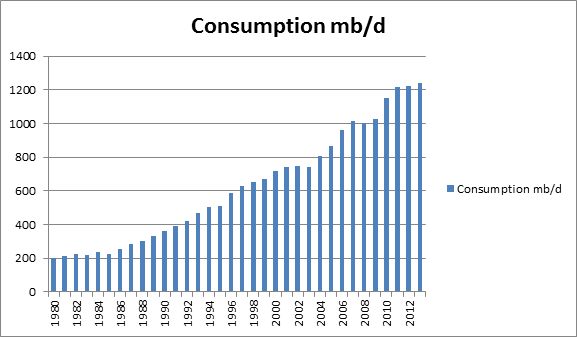
SINGAPORE, Jan. 28, 2015 /PRNewswire/ -- China's apparent oil demand* in December rose 5.3% year over year to 44.96 million metric tons (mt), or an average 10.63 million barrels per day (b/d) – hitting the highest absolute demand on record – according to a just-released Platts analysis of Chinese government data.
China's apparent oil demand in 2014 rose 3% from a year before to an average of 10.1 million b/d, which was higher than the 2% year-over-year growth seen in 2013.
World Crude Oil Market Analysis:
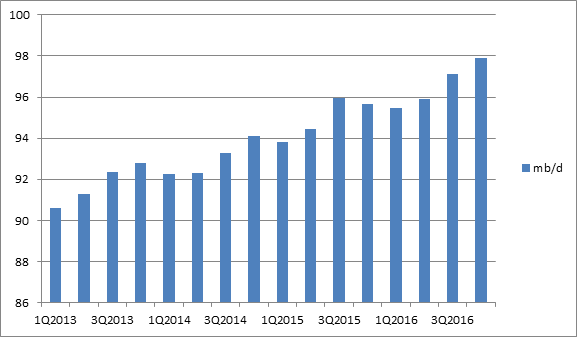
· Recent weaknesses in demand growth are likely to prove transitory, particularly in post currency-reform India. Although global growth was only 0.9 mb/d in 1Q17, it accelerates in 2H17 and for the year as a whole our outlook remains unchanged at 1.3 mb/d. In 2018, growth increases modestly to 1.4 mb/d as demand reaches a record 99.3 mb/d.
· Global oil supply rose by 585 kb/d in May to 96.69 mb/d as both OPEC and non-OPEC countries produced more. Output stood 1.25 mb/d above a year ago, the highest annual increase since February 2016. Gains were dominated by non-OPEC, particularly the US.
· OPEC crude output rose by 290 kb/d in May to 32.08 mb/d, the highest level so far this year, after comebacks in Libya and Nigeria, which are exempt from supply cuts. Output from members bound by the production deal edged lower, which kept year-to-date compliance strong at 96%.
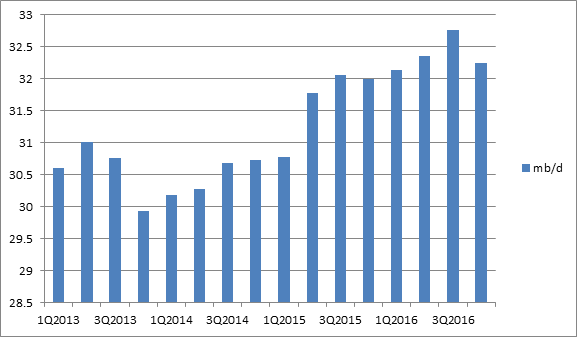
· OECD commercial stocks rose in April by 18.6 mb (620 kb/d) on higher refinery output and imports. They stand 292 mb above the five-year average and are higher than when OPEC decided to cut output. For May, preliminary data suggests stocks falling in Fujairah, Japan, Europe, Singapore and in vessels offshore, but rising in the US and China.
· Benchmark crude oil prices fell after 23 May, reflecting lower expectations about the pace of global market rebalancing. At publication time, crude prices are close to the levels when the OPEC output deal was announced. Fuel oil prices and cracks were boosted as stocks fell to their lowest level in two years due to tight supplies of sour crudes. Gasoline and naphtha prices fell.
· Record high US refinery throughput in April and May led to upward revisions to our 2Q17 and 3Q17 forecasts. Global refinery intake is projected to reach 80 mb/d in 2Q17 and 81.3 mb/d in 3Q17, up by about 1.1 mb/d y-o-y in each quarter. In 3Q17, throughput growth is driven by the US and China in the East.
Conference Highlights
- Petroleum Geology
- Geophysical Exploration
- Hydraulic Fracturing
- Advanced Drilling Technologies
- Petroleum Refineries
- Computer Applications in Petroleum Engineering
- Computational Modeling Techniques
- Petroleum Desulphurization Techniques
- Reservoir Engineering & Reservoir Simulation
- Advanced Natural Gas Engineering
- Petrophysics & Petrochemistry
- New frontiers in Petroleum Engineering
- Major Challenges in Petroleum Industry
- Environmental Impacts in Petroleum Engineering
- Petroleum Substitutes
- Petroleum Economics
To share your views and research, please click here to register for the Conference.
To Collaborate Scientific Professionals around the World
| Conference Date | July 20-21, 2018 | ||
| Sponsors & Exhibitors |
|
||
| Speaker Opportunity Closed | Day 1 | Day 2 | |
| Poster Opportunity Closed | Click Here to View | ||
Useful Links
Special Issues
All accepted abstracts will be published in respective Our International Journals.
- Journal of Petroleum and Environmental Biotechnology
- Journal of Chemical Engineering and Process Technology
Abstracts will be provided with Digital Object Identifier by







